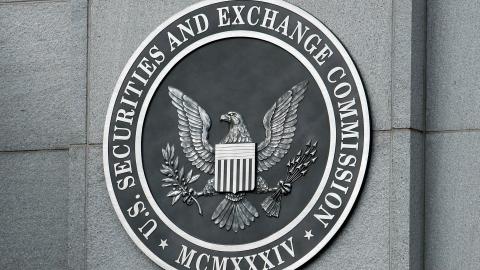Innovation is America’s greatest advantage in our tech competition with China, but a small rule change in Washington could inadvertently hobble our innovation edge and seriously erode our standing in the world.
Technology translates directly into geopolitical power and, as a result, bipartisan leaders are pouring billions of dollars in US government funding into everything from microchips to new energy initiatives. But in a capitalist system, the government alone should not be driving investments. The private sector has been central to the most important innovations that drive American growth—from semiconductors to artificial intelligence. And every one of those investment successes was preceded by hundreds, if not thousands, of failures.
This rule, which is set to be released and put to a commission vote, would address levels of liability for “negligence” related to funds and fund advisers. As the SEC considers the proposed changes, it is important that it does not overcorrect at the expense of innovation. Doing so could have dire consequences for all Americans.
Venture capital, or VC, is a critical piece of the “new geometry of innovation” that has driven America’s historical economic growth, providing a firm foundation for US national security. Venture funds, in particular, are associated with some of the most successful industries and firms in the world—from Microsoft to Amazon to Facebook and, more recently, to SpaceX and even the mRNA vaccines. Although VC backed firms comprise less than 0.5 percent of firms that start in the United States, they represent nearly half of entrepreneurial companies that go public. This includes some of the most important new entrants in the defense sector. Anduril, Epirus, Palantir and many other VC-backed companies are developing game-changing technologies for 21st century warfare.
Over the past decade, China has recognized the power of VC funding. Leaders of the Chinese Communist Party (CCP) have remarked on “the healthy development of venture capital for economic development” and sought to learn from Silicon Valley’s success. Today, China is right behind the US tech community, with about 40 percent of all VC investments in the world. The CCP uses these investments to drive growth in the tech sectors it has deemed strategic to China’s security, including dominance in artificial intelligence, quantum computing and other foundational platforms for future technologies. Some of its most important companies, such as the global consumer drone company DJI, Huawei and SenseTime—the latter developing the AI in much of China’s surveillance state—were VC-backed.
By definition, investments involve risk and many never turn a profit. According to Shikhar Ghosh of Harvard Business School, 75 percent of VC-backed startups fail. For example, Founders Fund has invested in more than 850 companies in its more than 17-year history, but over 80 percent of all historical returns to their investors have been generated by continued, concentrated investments in fewer than a dozen top performing companies. This power law dynamic is present in the return profile of every venture fund. Failure is part of the game.
In the private sector, where failure is an opportunity to learn, the mantra among the most innovative companies is “fail faster,” because the sooner you learn what doesn’t work, you’re a step closer to knowing what does work. This approach is the opposite of that of the public sector, where failure can pose an existential threat to cherished spending programs. Government plays a fundamental role in mitigating risk, but imposing the public sector’s risk aversion on the private sector’s most innovative companies is to guarantee failure.
Venture capital is a unique asset class built around making bets that other institutions would never make. This high tolerance for failure enables brilliant entrepreneurs to pursue research and development spending that otherwise would be impossible to finance. It’s one of our nation’s most potent defenses against central planning and plutocracy, drawing talented entrepreneurs from diverse backgrounds into our tech economy and giving them a shot at hitting a home run.
Innovation and risk go hand in hand. Rules that would punish VC firms for taking risks will kill America’s ability to compete with China.















